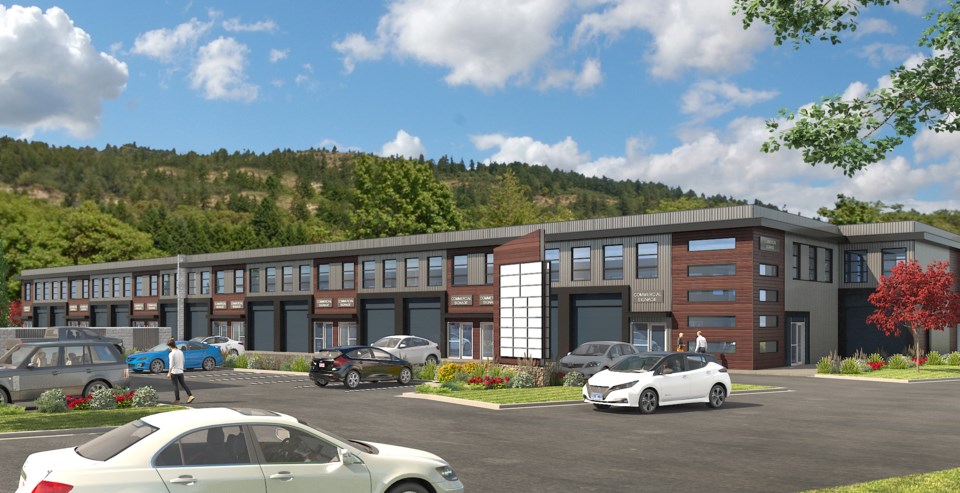With a 0.7 per cent vacancy rate – the lowest in North America – and average lease rates the highest in Canada, Victoria, B.C. appears ripe for the type of speculative strata industrial development now common in Metro Vancouver.
But local agents say the small market of 9.3 million square feet remains driven by owner-occupiers. At least for now.
“We are seeing a lot of developers coming out of Vancouver who will plan and build industrial for lease and for sale,” said Ty Whittaker, vice-president with Colliers International, Victoria. “But Victoria is really an owner-occupier market.”
What the Victoria area is not seeing is individual investors buying new strata space with the prospect of leasing the units out, Whittaker said.
In fact, the word “strata” is not mentioned in Colliers’s recent Victoria industrial market report for the third quarter of 2020.
This is in contrast to Metro Vancouver, where half of the new industrial construction underway is targeted at strata buyers, according to Avison Young, which noted that new developments being delivered through 2021 include “only limited amounts of new space for lease.”
The reason for Vancouver-area strata demand is due to spiralling land and lease costs, combined with low vacancies for lease space, Avison Young noted – all scenarios now being experienced in B.C.’s capital city.
Average industrial lease rates in Victoria are up 15 per cent this year to $15 per square foot, according to Colliers, a rate that is higher than in Metro Vancouver ($13.12 per square foot) or even Greater Toronto, at $12 per square foot.
“Strata industrial is the next big move in Greater Victoria,” said Cory Wright, president of Vancouver-based William Wright Commercial, which recently expanded into Victoria.
A prime example is a 13-unit small-bay strata industrial project in Langford, by a local developer, that Devencore Realty Corp. sold out this year at $315 to $350 per square foot, prices similar to that being seen in Metro Vancouver suburban markets.
“About 30 per cent of the buyers were investors,” said Devencore sales agent David Bornhold.
Wright, whose company, acting as buyer agents, transacted six units in the project, said investors are achieving lease rates of from $18 to $21 per square foot, which is much higher than the original pro-forma had indicated.
“We leased all the [investor] space and the project doesn’t complete until next year,” Wright said.
Devencore has just launched marketing for a second phase of 10 strata units. The developer has retained four of these and Bornhold expects the remaining six to sell out by January.
“These are bite-size units,” Bornhold noted, with average 1,400 square foot bays with 480 square feet of mezzanine space. “So the price-per-square-foot seems high, but it is affordable when you consider the lease rates and the extremely limited supply.” He expects most of the Phase 2 buyers will be owner-occupiers.
Record-low mortgage rates are an incentive for businesses to buy rather than lease, Wright added.
The upcoming industrial development in suburban Victoria area is a mix of strata and lease.
Omicron Development Inc. and Lotus Capital Corp. of Vancouver, for example, have launched a 20-acre, 358,000-square-foot, $100 million industrial project in Colwood, which is primarily a lease opportunity.
But both Bornhold and Wright expect strata to become a trend in Greater Victoria’s industrial sector, due to higher land costs and a lack of lease opportunities for smaller tenants.
Land costs
“You’re not touching serviced industrial land anywhere in suburban Greater Victoria for less than $2.5 million per acre,” Bornhold said, noting an eight-acre site in Colwood recently sold to the Royal British Columbia Museum, for an archive and collection warehouse, at $14 million “and that is considered cheap.”
Another indication of future strata industrial in Greater Victoria is the arrival of giant developers keen on the concept.
Wright said a new project, not yet officially announced, will deliver 160,000 square feet of stacked industrial strata space in Langford, expected to launch by the second quarter of 2021.
Vancouver-based Beedie – Western Canada’s largest real estate developer – made its first foray onto Vancouver Island in October, buying a raw 13-acre site in Langford for approximately $17 million. Most of Beedie’s projects in Metro Vancouver are light industrial and three of its newest projects are all strata.
Lauren Horsman, Beedie’s acquisitions manager, said they are working with Langford’s engineering department and hope to get shovels into the ground soon.
“At this point we are still in the early assessment stages and cannot confirm the final form of development,” she said. “I think it will be pretty market dependent, but it’s hard to say right now.”
A statement on the Beedie website may give a clue to the planning. “Stop paying rent and start building equity. We can help you own your new industrial [space]” it reads.



